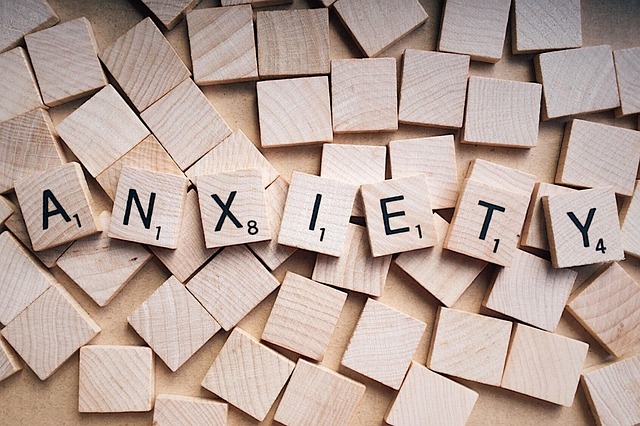Centennial Russian Speaking Therapy offers specialized crisis intervention services tailored to diverse cultural backgrounds. Their approach integrates linguistic fluency, evidence-based strategies, and holistic therapeutic modalities to support individuals in critical situations. By addressing language barriers and cultural differences, they provide culturally sensitive care. The center focuses on building resilience through education programs, post-crisis support, and self-care practices for both victims and healthcare providers, ultimately enhancing community preparedness for future crises.
“In times of crisis, effective intervention can be a lifeline. This article explores essential strategies for navigating critical situations, focusing on the unique role of Centennial Russian-speaking therapists. We delve into the art of understanding and managing diverse crises, highlighting communication techniques vital for emergency settings. From assessing immediate needs to building community resilience post-crisis, this guide equips professionals with valuable insights. By exploring these interventions, we aim to enhance preparedness and foster stronger, more resilient communities, particularly within multicultural contexts where Centennial Russian-speaking therapy plays a pivotal role.”
- Understanding Crisis Intervention: A Brief Overview
- The Role of Centennial Russian-Speaking Therapists in Critical Situations
- Effective Communication Strategies for Emergency Settings
- Assessing and Managing Different Types of Crises
- Post-Crisis Support and Community Resilience Building
Understanding Crisis Intervention: A Brief Overview

Crisis intervention is a crucial aspect of mental health support, offering immediate assistance to individuals facing severe or life-threatening situations. It involves a structured approach to help people cope with and recover from traumatic events, acute stress, or intense emotional crises. The goal is to stabilize the individual, provide immediate relief, and prevent further deterioration or potential harm.
At Centennial Russian Speaking Therapy, we recognize that every crisis is unique, and our guidance emphasizes a tailored approach. We offer evidence-based strategies that can be adapted to diverse settings, including clinical practices, schools, workplaces, and community organizations. By incorporating techniques from various therapeutic modalities, our team equips individuals with effective tools for managing acute stress and preventing depression. This holistic approach considers the interconnectedness of mental health, often addressing burnout prevention strategies for healthcare providers as well as organizing stress management workshops to empower people in their self-care journeys.
The Role of Centennial Russian-Speaking Therapists in Critical Situations

In critical situations, Centennial Russian-speaking therapists play a pivotal role in providing crisis intervention services to individuals from their cultural background. These therapists are uniquely equipped to address the specific needs and challenges faced by the Russian-speaking community due to their shared linguistic and cultural understanding. They bridge the gap between clients and healthcare systems, ensuring effective communication and culturally sensitive care. With the ability to offer therapy in their native language, they foster trust and create a safe space for individuals who might otherwise face barriers in accessing mental health support.
The expertise of these therapists extends beyond language proficiency. Many have experience navigating complex cultural dynamics and can tailor interventions to respect traditional healing practices while integrating modern therapeutic techniques. They are well-positioned to provide Social Skills Training, facilitate Community Outreach Program Implementations, and promote Cultural Sensitivity in Mental Healthcare Practice, making them invaluable assets in diverse communities.
Effective Communication Strategies for Emergency Settings

In emergency settings, effective communication is a cornerstone of successful crisis intervention. At Centennial Russian Speaking Therapy, we recognize that language barriers and cultural differences can complicate matters during high-stress situations. Therefore, our approach emphasizes clear and concise communication strategies tailored to diverse populations, including those from various ethnic backgrounds and limited English proficiency. By providing therapists fluent in multiple languages, we facilitate open dialogue, ensuring that every individual receives the necessary support and care.
Our Community Outreach Program Implementation incorporates these principles, focusing on educating both professionals and community members on trauma-informed communication techniques. We also promote Self-Care Practices within our services to help individuals manage their emotional well-being during and after crisis events. Additionally, Trauma Support Services are integrated into our emergency interventions, offering specialized care for those who have experienced traumatic events. Through these comprehensive strategies, Centennial Russian Speaking Therapy strives to create a supportive environment, foster meaningful connections, and ultimately enhance the effectiveness of crisis intervention.
Assessing and Managing Different Types of Crises

In the realm of crisis intervention, understanding and managing diverse types of crises is paramount for professionals like those at Centennial Russian Speaking Therapy. Whether it’s a sudden traumatic event, an escalating personal conflict, or a systemic crisis within a community, each scenario demands tailored strategies. Assessment plays a crucial role in determining the most effective response, considering factors such as cultural context, individual resilience, and available support systems. For instance, when addressing a crisis within a culturally specific population, like Russian-speaking communities, therapists must be adept at navigating language barriers and incorporating cultural sensitivity into intervention plans.
Centennial Russian Speaking Therapy emphasizes the importance of building resilience through comprehensive Mental Health Education Programs Design. This involves equipping individuals with coping mechanisms and stress management techniques to effectively navigate crises. By integrating Resilience Building strategies, such as cognitive-behavioral therapies and mindfulness practices, therapists empower clients to foster mental agility and emotional stability. In addition, these programs often include training in problem-solving skills and communication techniques, further enhancing individuals’ ability to manage and overcome challenging situations, both personally and collectively.
Post-Crisis Support and Community Resilience Building

After a crisis, providing sustained support and fostering community resilience is paramount to prevent relapses and promote long-term healing. The process involves creating safe spaces where individuals can openly discuss their experiences and emotions, often facilitated by trained professionals like those at Centennial Russian Speaking Therapy. This post-crisis phase is crucial for building a sense of belonging and empowerment, encouraging affected persons to share their stories and gain different perspectives.
Community resilience efforts should also focus on self-esteem improvement and burnout prevention strategies for healthcare providers who often play vital roles in crisis intervention. By integrating depression prevention measures and promoting holistic well-being, communities can strengthen their collective ability to withstand and recover from future crises. Through collaborative initiatives, support groups, and educational programs, individuals gain the tools needed to navigate challenges and foster a sense of community resilience.
In conclusion, crisis intervention strategies are vital tools for navigating emergency situations. By understanding the unique role of Centennial Russian-speaking therapists and employing effective communication techniques, we can better assess and manage various crises. Integrating post-crisis support and community resilience building ensures a holistic approach to addressing these challenges. This comprehensive guidance equips professionals with the necessary skills to make a meaningful impact in critical moments.











